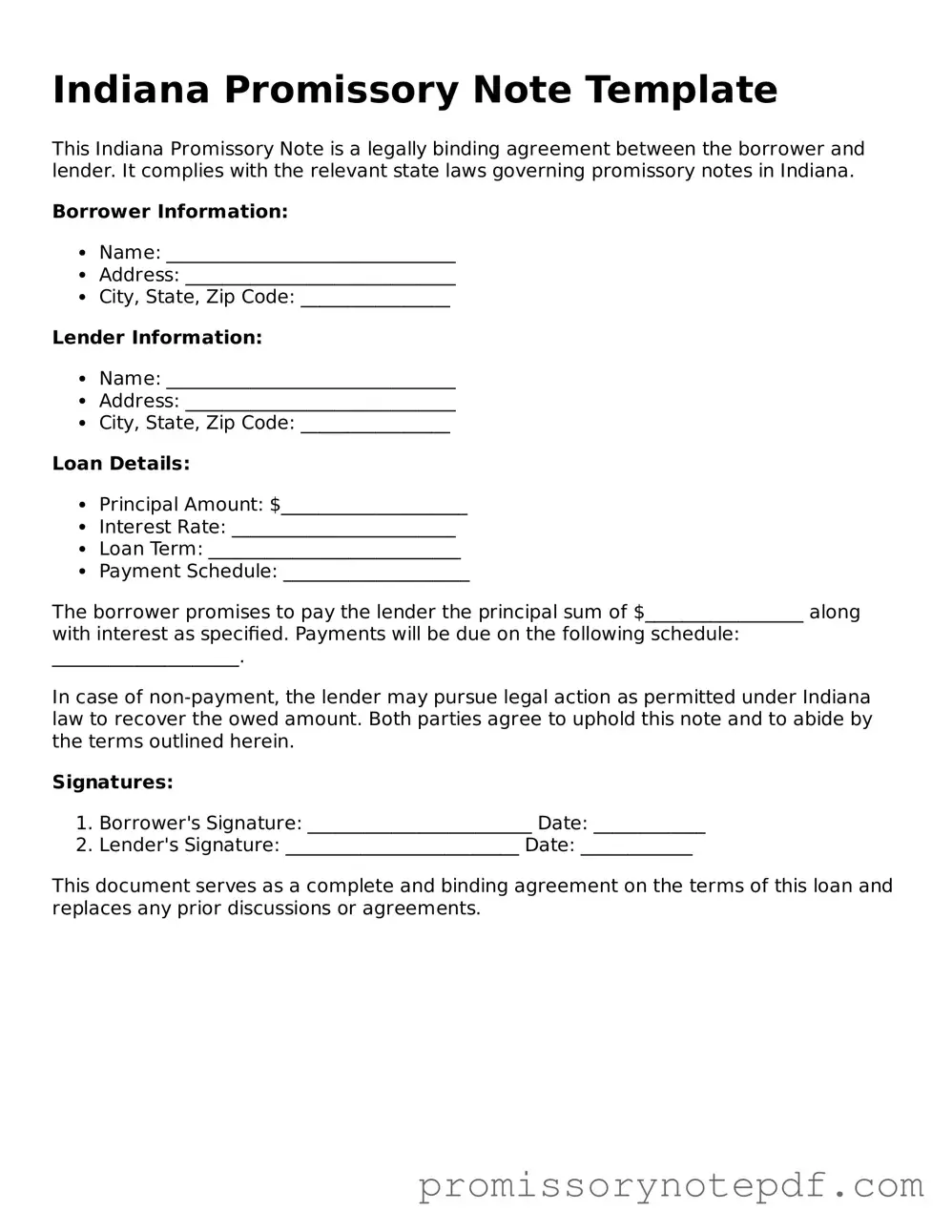Common mistakes
-
Incomplete Information: Failing to fill in all required fields can lead to confusion or disputes later on. Ensure that all sections, including names, addresses, and loan amounts, are fully completed.
-
Incorrect Dates: Entering the wrong date can invalidate the document. Double-check that the date of signing and the due date for repayment are accurate.
-
Missing Signatures: Both the borrower and lender must sign the document. A missing signature can render the note unenforceable.
-
Ambiguous Terms: Vague language can lead to misunderstandings. Clearly define the terms of repayment, including interest rates and payment schedules.
-
Ignoring State Laws: Not adhering to Indiana's specific requirements for promissory notes can result in legal issues. Familiarize yourself with local regulations to ensure compliance.
-
Failure to Include Payment Details: Omitting information about how and when payments will be made can create confusion. Specify the payment method and schedule clearly.
-
Neglecting to Make Copies: After signing, not making copies for all parties involved can lead to disputes about the terms of the loan. Always keep a copy for your records.
-
Not Considering Default Terms: Failing to outline what happens in the event of a default can leave both parties unprotected. Include clear consequences for missed payments.
-
Overlooking Witnesses or Notarization: Depending on the amount of the loan, some notes may require a witness or notarization. Check if this is necessary to ensure the document's validity.
